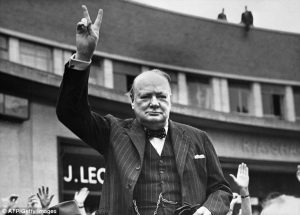Elite’s Power, and Interests in Britain
The factor which determines class in Britain is occupation, but occupation depends today largely on education. Therefore, education is the under-pinning element in the British class system. Manual workers are early school leavers. Those who continue their education after the age of sixteen become white-collar workers. However white-collar workers are divided into clerical, managerial and professional sections. Again education plays an important part in bringing about such sub-division. Among those 15% who stay at school after their primary studies, only 4 or 5% find their way into universities. Oxford and Cambridge, which are also crucial mechanisms for integration of the elite, take only about one-eighth of the total student population. On the other hand, public schools superimpose a further distinction in the class system which is no less important. The public schools have greater academic- particularly scientific – facilities. Boys are taught and educates on a more individual basis. Most of the boys who go to the best public schools are sons who belong to the upper strata of the society and to the aristocracy. If public schools have not been successful in giving attitudes to their alumni at least they have been successful in shaping a socially integrated elite by giving them contacts. These contacts facilitate their careers and enable them to have more influence in the posts which they eventually occupy.
Those who go to public schools such as Eton, Harrow, Winchester, Rugby, Charterhouse, Marlborough and later to Oxford and Cambridge occupy positions in the monopoly sector of the economy, such as large companies, banks and insurance firms in the City, in Parliament, Government, the military and para-military forces, and the Civil Service, in the Church and the legal profession and in the various bodies and agencies which bridge the gap between the state and the economy.
“As the analysis of C.S. Wilson and T. Lupton in 1959 shows, Eton alone produces 30% of the Conservative ministers, of the directors of large banks, of the directors of the City firms, of the directors of the insurance companies.”8 Eton, and five other public schools that have been mentioned, produce between two-fifths and a half of the holders of these posts. For example, the 30% or so of Old Etonians whom one finds in the government and various other organizations, “have greater influence than their number warrant because, being Old Etonians, they have more contacts. They supply information about other Old Etonians who are influential in other walks of life; they are go-betweens, they are the instrument of compromises in the sectors of British political, social and economic life in which they are numerous.”9
Connection of the honours system with career promotion provides an effective mechanism to control the cohesion of the elite. For example, “although the Order of the British Empire is the normal order for Civil Servants, those in the Foreign Office and the Diplomatic Service normally receive honours in the Order of St. Michael and George. Honours below the level of CBE are used in a relatively non-discriminatory way, but the CBE (or CMG) itself is awarded more or less automatically on promotion to the level of Assistant Secretary. Under Secretaries can expect a Commandership in the most prestigious Order of the Bath (CB), whilst those who are promoted to Deputy Secretary are well placed for a knighthood in the Order of the Bath (KCB), and those who continue to give services at this level might become superior Knights Grand Cross (GBE).



